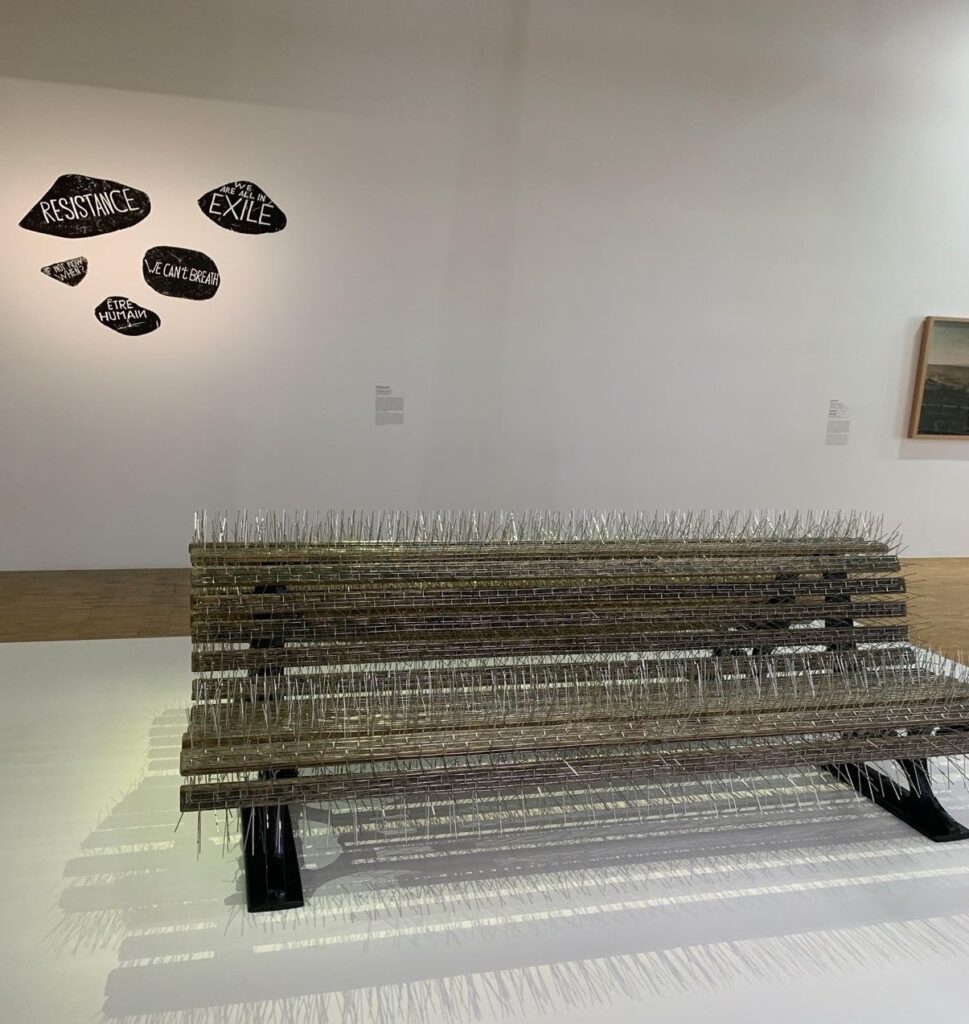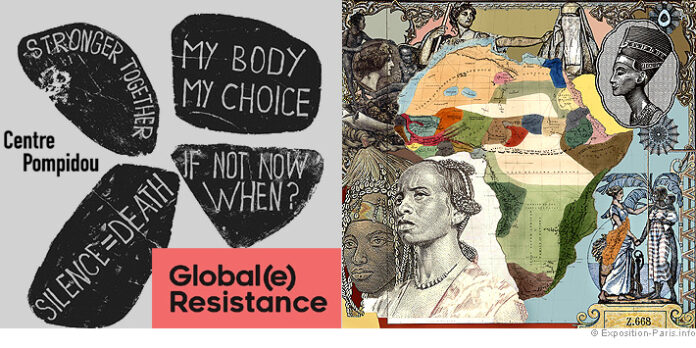By Evi Tsakali,
Some months ago, with a friend and fellow student here in Paris, we visited the Centre Pompidou, initially for a Matisse exhibition. In fact, we were rather disappointed to find out that some of his most famous works were actually collages (sorry Matisse). I have to admit that -in general- I was not very fond of the idea of going to that exhibition, I was just happy to be involved; until we went downstairs, where a different kind of exhibition was held. A kind of exhibition that I loved so much that I felt -for the first time in my life- the need to buy its official catalogue from Centre Pompidou’s bookshop. It did not involve your typical paintings; it involved a bench full of spikes, a tapestry preaching a future promising equal opportunities for all, an installation showing massacre victims with their images being interrupted by quotes, such as “shot dead unnecessarily” or “not a trophy,” or even a number of TVs showing the same scene, shot in different languages, featuring women of different ethnicities treating their respective housemaids (of different ethnicity) in a racist way. The exhibition was titled “Global(e) Resistance”, and it was the first time I came across the notion of activism.
In the words of Serge Lasvignes (the President of Centre Pompidou) and Bernard Blistone (Director of the Musée National d’Art Moderne) in the foreword of the exhibition’s official catalogue “the exhibition Global(e) Resistance is deeply rooted in current events, addressing key societal and political issues that are at the very center of these works. It questions artists’ relationship with the world around them, the different ways they resist situations and events that shock their hearts and minds as well as the way they recreate and transcend them. In so doing, it addresses the problem of human rights and the struggles against the deprivation of liberty. Issues related to history and memory, postcolonial questions, feminism and gender issues as well as ecological problems have created significant stimuli from one continent to another -so many necessary questions in a world of disarray. Their words not only describe the exhibition, but also give us a grasp of what artivism is.

Artivism, as its two components -art and activism- imply, deals with the embrace and exploitation of art as the catalyst in trying to reach activist objectives. As a matter of fact, art has always been considered, among others, a communication device or a campaign tool; but when it comes to activism, it is not only that. Art -both from the experience of the creator and the observer- incites an emotional response. It has the unique power to encompass many -and often confusing- emotions, as well as instigated feelings that are difficult to rationalize. And when it comes to humanity, not everything can be rationalized. The aforementioned elements can be useful for activists as they navigate their movements and seek to change society.
As a law and political science student, I am more than willing to acknowledge the legal and political scope of social and humanitarian affairs, a scope based on the grounds of reason and arguments. Nevertheless, I firmly believe that -in spite of it all- humanitarian affairs retain, and need to retain, their more sentimental aspect; and it is this very aspect that artivism serves. And as a friend of mine likes to remind me via his favorite quote from Albert Einstein: “Logic will get you from A to B. Imagination will take you everywhere.”

References
- Global(e) Resistance (official bilingual exhibition catalogue). Centre Pompidou Editions.
- Ramsden, Che. Artivism: art as activism, activism as art. Open Democracy. Available here.




